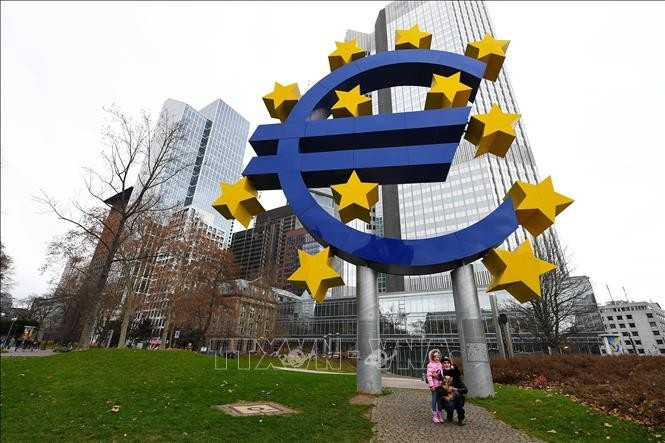According to a report by Eurostat, 19 Eurozone economies achieved a growth of 0.1%, compared to the previous quarter. The data does not include Croatia, the 20th member of the bloc, in January this year.
Meanwhile, the European Commission (EC)’s report said that the Eurozone’s economy will grow in 2023, faster than the previous forecast, when the energy crisis shows signs of easing and the region's economy avoids a recession scenario, during the winter when growth returns for the first time in six months. The growth of the 20 eurozone member states is forecast to reach 0.9% in 2023, instead of the previous 0.3% forecast.
Inflation is also expected to be lower than the time when the Ukraine conflict broke out and drove up gasoline and gas prices last year. The inflation peak in the Eurozone seemed to pass, after hitting a record of 10.6% in October 2022. The Eurozone’s inflation rate fell for the third consecutive month to 8.5%, in January 2023.
The inflation rate was lower than the 9.2% level in December 2022 and below the 9% forecast, which was made in an earlier Reuters poll. The inflation decreased due to the cooling of energy prices last month, as it increased by only 17.2%, lower than the rate of 25.5% in December 2022. Besides, the EU labour market has continued to show many positive signs, with unemployment remaining at an all-time low.
Experts predicted that the European economies will grow faster in the second quarter of 2023. Accordingly, the Eurozone is likely to avoid the risk of a technical recession. However, this does not mean that all countries in the region can avoid the risk of economic recession.
Out of 19 Eurozone economies, six shrank in the fourth quarter of 2022, with the GDP of Germany and Italy falling by 0.2% and 0.1% respectively. The two largest and third largest economies in the Eurozone have been hit hard by the crisis in Ukraine because they depend on exports and gas supplies from Russia.
The Eurozone economies recorded positive signals after the European Central Bank (ECB) and banks around the world, launched a series of interest rate hikes last year, to contain inflation. However, the EC warned that the economic headwinds remained strong. Consumers and businesses continue to face high energy costs and core inflation (stripping out only food and energy prices) still increased in January 2023.
Overall, the economy has proved more resilient than expected, but the ECB could maintain its path of rate hikes in March, said ECB President Christine Lagarde. Intra-regional demand can grow more than forecast if the recent drop in gas prices has a stronger impact on consumer prices and consumption proves more resilient. However, it is still impossible to rule out the possibility of a reversal of this trend, as the geopolitical tensions have not ended.
The cautious optimism is fueled by energy prices that began to fall, after consistently staying high last year, due to the impact of the conflict in Ukraine. This year's not-so-cold winter has also helped ease worries about fuel shortages. Lower energy costs have contributed to inflation in the Eurozone. The growth rate of consumer prices slowed down to 9.2% in December 2022. This is a sign of the hope that inflation has finally peaked and is coming down.
The Eurozone has been assessed to have passed the worst of the economic shock with inflation slowing from its peak in October 2022 and reaching growth by the end of 2022. The ECB President Christine Lagarde forecasted that the Eurozone’s economy will be much better this year than initially feared, with growing hopes that the countries can avoid a deep recession. Although the prospects are not bright, the Eurozone economy has escaped.
















